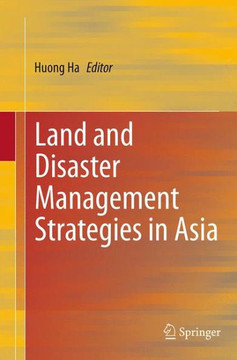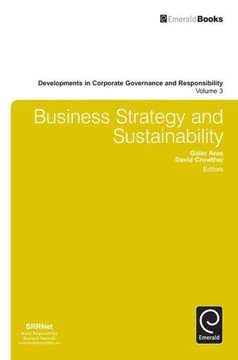
World Scientific Publishing Company
Sustainability Management and Business Strategy in Asia
Product Code:
9789811200182
ISBN13:
9789811200182
Condition:
New
$104.76

Sustainability Management and Business Strategy in Asia
$104.76
Sustainability is a concept that unifies the environment, economy, and society, and has spread as a key concept in enterprise management. The United Nations adopted the Sustainable Development Goals (SDGs) in 2015, which require worldwide efforts to reach a sustainable society, and also applies to private enterprises. Sustainability should be developed in connection with management strategy, and Asia's role, including that of Japan, is important to improve global sustainability. This book addresses how sustainability management in the Asian context is currently practised and proposes practices for the future. Investigation of the effect of business domain characteristics on the integration of sustainability and management, and elucidation of the process and features of EMCS (Environmental Management Control System) inside and outside of companies have been indicated. The book points that companies need to use and design Sustainability Management Control Systems in order to implement a CSR (Corporate Social Responsibility) strategy and match employees' behavior to CSR activities. MFCA (Material Flow Cost Accounting) has started to expand rapidly into other Asian industries from Japan as a method of Environmental Management Control. The fundamental idea and procedure of MFCA and many case examples of Japanese MFCA have been reported. These findings help us to consider a policy for continuous use of MFCA. Moreover, the relationship between Toyota Production System and MFCA has been explained and 'Material Flow Time Costing' as a new management accounting concept is proposed. Based on the literature review, the study has made recommendations for Asian companies' strategic management and governmental policy-making to improve both quality and quantity of sustainability disclosure in Asia. One of the papers has identified the development and implementation of social and environmental accounting by Indonesian state-owned enterprises and their determining factors. In a Japanese manufacture, the effect of smoothed production has been analyzed as an example of environmental management. This led to an increase in production quality without additional capital spending.
| Author: Katsuhiko Kokubu, Yoshiyuki Nagasaka |
| Publisher: World Scientific Publishing Company |
| Publication Date: Oct 24, 2019 |
| Number of Pages: NA pages |
| Language: English |
| Binding: Hardcover |
| ISBN-10: 9811200181 |
| ISBN-13: 9789811200182 |





